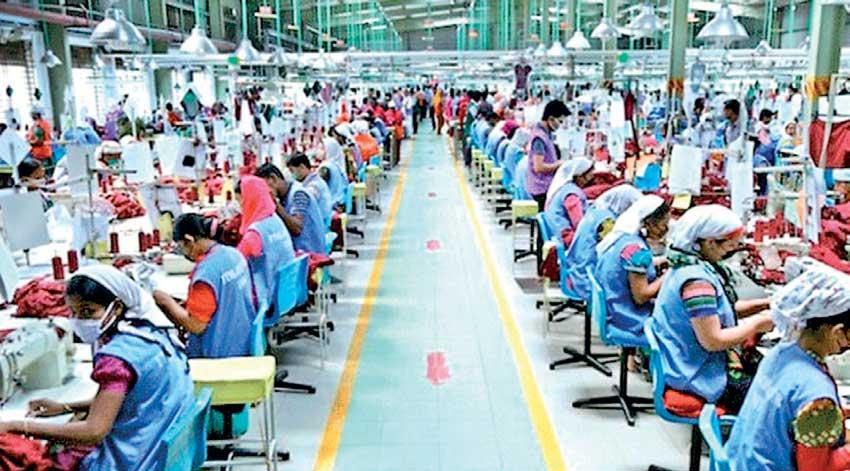13 Aug 2022 - {{hitsCtrl.values.hits}}

The global apparel industry issued a call to action regarding Sri Lanka’s economic crisis this week, urging the stakeholders across the world to step up efforts in ensuring the island nation’s high-performing sector does not lose momentum.
In a move to ensure their competitor from the South Asian region does not fall behind, due to the prolonged crisis in the country, the apparel industry organisations are mobilising worldwide. As reported by Just-Style, a global apparel sourcing and industry news platform, the organisations are coming together to express their support for Sri Lanka’s garment industry and its workers, during the country’s ongoing economic crisis.
The American Apparel and Footwear Association (AAFA) sent a letter on behalf of the buyers to its counterpart association in Sri Lanka, the Joint Apparel Association Forum (JAAF), to reiterate the US apparel and footwear industry’s strong support for the Sri Lankan garment industry during what it calls this time of crisis and transition.
In the letter, AAFA President and CEO Steve Lamar said the organisation applauds the JAAF and its members for its “relentless efforts” to keep workers employed, safe and healthy amid an unprecedented economic crisis. “Your continued work has kept the industry moving forward, preserved jobs in Sri Lanka’s garment industry and supported the Sri Lankan economy through these extremely difficult times,” said Lamar in the letter.
Lamar stressed that the AAFA recognises that any significant changes in sourcing during this time could have a major impact on Sri Lanka’s garment industry, hundreds of thousands of workers the industry employs, their families and Sri Lankan economy. Therefore, the association said it remains committed to being cognisant and mindful of the current situation and the industry’s ongoing commitment to consider the impact on the workers, in any sourcing decisions.
“As part of those efforts, we also commit to maintaining regular communications with our partners in Sri Lanka. The AAFA will work with its suppliers to ensure all payments are made in a timely matter and that all workers are treated in accordance with the law,” added Lamar.
Similar action was also taken by the Ethical Trading Initiative (ETI), Fair Wear Foundation, Fair Labour Association and British Retail Consortium. Just-Style reported that the agencies have signed a joint call to action, encouraging companies sourcing from Sri Lanka to take specific steps to support workers, suppliers and the sector at large, during this difficult period. “Sri Lanka plays an important role in supplying global apparel brands and retailers. It is crucial businesses support the country’s apparel industry during this difficult time, to keep workers and their families afloat and the Sri Lankan economy in motion, amid the current crisis,” said Ethical Trading Initiative Executive Director Peter McAllister, as reported by Just-Style. In the call for support, the associations and agencies have stressed that they want to encourage the companies sourcing from Sri Lanka to take a series of actions. The actions are to ensure there is a clear understanding of the risk to workers in the current situation; maintain regular communications with your suppliers to understand their current situation and ensure timely payment of orders; avoid cancellation of orders and assure suppliers of business continuity for the time being; ensure all pending wages and severance payments are paid to all employees and workers; review negotiated prices and ensure future price negotiations include the increase in costs for energy, other raw materials and labour exposed to inflation; engage with unions and suppliers to explore innovative remedial solutions to support workers and work collaboratively to consider other actions to improve respect for human rights in the context of Sri Lanka’s economic crisis.
07 Nov 2024 20 minute ago
07 Nov 2024 38 minute ago
07 Nov 2024 2 hours ago
07 Nov 2024 2 hours ago
07 Nov 2024 2 hours ago